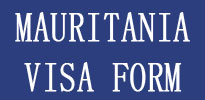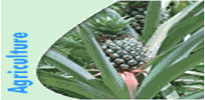Botswana: Commemoration of Africa Human Rights Day
2016/10/22

oday, the African People commemorate the Africa Human Rights Day across the continent under the theme “Women Rights – Our Collective Responsibility”.
On this occasion, H.E. Dr. Aisha Laraba Abdullahi, Commissioner for Political Affairs issued a statement on behalf of H.E. Dr. Nkosazana Dlamini Zuma, Chairperson of the African Union Commission describing this year’s theme as timely and appropriate. Timely in the sense that it coincides with the Declaration of the African Union’s Heads of National and Government of “2016 as the African Year of Human Rights with Particular Focus on the Rights of Women”. It is, therefore, a clarion call on Africa to do additional to promote women’s rights, particularly the rights to development. It is in this context that the African Union Commission has concluded that the AHRD theme for this year is a reflection of a ray of hope that through empowerment of women in Africa, sustainable peace and development will be ushered in.
The Commissioner for Political Affairs stated that on 21 October 1986, the African Charter on Human and Peoples' Rights came into force thereby forming the basis for the commemoration of the Africa Human Rights Day (AHRD). The AHRD, which is celebrated annually across the continent on 21st October, is an opportunity to reflect, take stock and recommit to the solemn declaration undertaken by the African leaders and the African people to promote and safeguard human and peoples’ rights on the continent. She further added that the commemoration is as well to continuously awaken better awareness of the African peoples and the international community on the price of life and humanity, and to renew our collective commitment to protect and uphold the fundamental human rights.
Dr. Abdulahi as well indicated that despite all the efforts to promote and protect human and peoples’ rights in Africa, inclunding women’s rights, the continent continues to face enormous challenges which if not urgently and adequately addressed, may erase the human rights gain recorded over the preceding decades. These challenges include, but are not limited to: inadequate allocation of resources to human rights institutions, inadequate capacity, insufficient political will, unwillingness by some States to cede part of sovereignty to supranational monitoring bodies, insufficient commitment by some States to domesticate and implement international and continental human rights treaties, persistent crisis and conflicts across the continent which result in loss of life, destruction of property and reversal of human rights gains, widespread poverty, ignorance and lack of awareness, vestiges of colonialism characterized by human rights unfriendly laws, bad governance, corruption and disregard for the constitutionalism and the policy of law.
In conclusion, Dr. Abdullahi as well added that in order to ensure that elements of the theme of this year have been completed, the DPA in close collaboration and coordination with other AU Organs with a human rights mandate, has been carrying out a series of activities commencing in 2016 and spread across the next 10 years, which was declared by Heads of National and Government in Kigali, Rwanda in July this year as the “Human and Peoples’ Rights Decade in Africa”. These activities seek to initiate a lobby and advocacy campaign that generates increasing momentum, and reaches out to member states stakeholders and partners at all levels.
- Related Articles
-
Botswana's economy grows sluggishly in first quarter of 2017
2017/07/19 Botswana's economy expanded 0.2 % quarter-on-quarter in the initial three months of 2017 versus 0.1 % in the final quarter of last year, data from the statistics office showed on Friday. On a year-on-year basis, gross domestic product grew by 0.8 % in Q1 next expanding by 4.2 % in Q4 of 2016. -
Tennis ball-sized 'diamond in the rough' too big to sell
2017/07/19 In the mysterious world of diamond mining, it turns out that some stones are too large to sell. Canada's Lucara Diamond Corp will have to cut its tennis ball-sized rough diamond to find a buyer, industry insiders say, following Sotheby's failed auction for the world's major uncut stone last summer. It's not the ending that William Lamb wanted for his 1,109-carat stone, named 'Lesedi La Rona', or 'Our Light' in the national language of Botswana where it was mined. -
South Africa plays an active role in the AU
2017/07/17 Absence of Zuma and Ramaphosa raises eyebrows, quoted Liesl Louw-Vaudran, a consultant at the Institute of Security Studies (ISS), who said South Africa was “ceding power to other players on the continent, such as Rwanda’s President Paul Kagame and the current AU chairperson President Alpha Condé of Guinea”. -
The SADC Wrap: Magufuli marches on against mines
2017/07/17 Tanzania’s president John Magufuli last week left mining houses reeling next signing into law a set of bills that would radically alter the playing field. The new laws allow the country to renegotiate all of its current mining contracts, increase royalties, and partially nationalise mining projects. “The laws as well deny the rights of mining companies to seek international arbitration and relief in the event of a dispute with the government,” reports The West Australian. -
Africa: How to Adapt to Beat Crippling Droughts
2017/07/17 Right presently, 14 million people across southern Africa face going hungry due to the prolonged drought brought on by the strongest El Niño in 50 years. South Africa will import half of its maize and in Zimbabwe as a lot of as 75 % of crops have been abandoned in the worst-hit areas. With extreme weather, such as failed rains, and drought projected to become additional likely as a result of climate change, some farmers are by presently taking matters into their own hands, and pro-actively diversifying the crops they grow.
-
- Botswana News
-
- BOTSWANA: Botswana's economy grows sluggishly in first quarter of 2017
- BOTSWANA: Tennis ball-sized 'diamond in the rough' too big to sell
- BOTSWANA: South Africa plays an active role in the AU
- BOTSWANA: The SADC Wrap: Magufuli marches on against mines
- BOTSWANA: Africa: How to Adapt to Beat Crippling Droughts
- BOTSWANA: Africa: Expanded Engagement for Caterpillar - Boosting Sales & Alleviating Poverty
- Trending Articles
-
- ITALY: Italy's Current Account Surplus Increases In May
- EUROPEAN UNION: Draghi Urges Patience And Persistence On Inflation
- ARGENTINA: ARGENTINA: Country Reaches Deal To Export Lemons To Mexico
- EUROPEAN UNION: ECB Keeps Markets Guessing On Tapering
- EUROPEAN UNION: Eurozone Consumer Confidence Unexpectedly Falls In July
- SOUTH AFRICA: South Africa CB Unexpectedly Trims Interest Rate By 25 Bps










